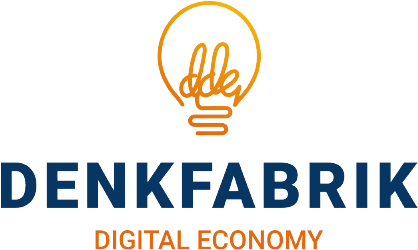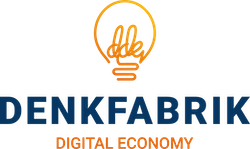Plattformisierung unseres Wirtschaftssystems

How to… write a Research Proposal
2022-09-20
How to… write the Theory Section
2022-10-14Veränderte Wertschöpfung
Im Gegensatz zur traditionellen Sichtweise unseres Wirtschaftssystems, passiert Wertschöpfung heute vermehrt von außen nach innen (Alstyne, 2021). Uber besitzt keine Autos, Airbnb keine Hotels oder Apartments, Facebook und Instagram kreieren keinen Content, Microsoft oder Apple programmieren nur einen kleinen Teil der Apps in ihrem Ökosystem. Zwei Phänomene, die uns u. a. interessieren: (1) die fundamentalen Annahmen, auf denen wir unsere Unternehmungen aufgebaut haben, ändern sich drastisch, nachhaltig und weitreichend (Drucker, 1994) und (2) der Plattform-Effekt.
Die Fundamente ändern sich
Viele der Unternehmungen, die heute erfolgreich sind, sind in einer Zeit entstanden, in der es noch kein Instagram, Uber, Amazon, usw. gab – die fundamentalen Annahmen, die wir damals getroffen haben (z. B. die relative Stabilität im Unternehmensumfeld und die relativ stabilen Verhaltensmuster von Unternehmen), sind heute quasi obsolet. Was Drucker (1994) bereits vor 30 Jahren festgestellt hat, erlangt heute umso mehr Validität: Marktgrenzen verändern sich, Konkurrenz wird neu gedacht, faktisch jeder Mensch kann heute einen Online-Shop innerhalb von 30 Minuten bauen und damit erfolgreichen Unternehmen gefährlich werden.
Der Plattform-Effekt
Der Plattform-Effekt leitet sich von dem Netzwerk-Effekt ab und geht noch eine Stufe weiter. Grundsätzlich kann der klassische Netzwerk-Effekt als ein Phänomen beschrieben werden, welches eine selbstverstärkende Wirkung aufweist, die sich schwer wieder aufhalten lässt (ähnelt dem Momentum-Effekt, wo nach anfänglicher Trägheit, die Geschwindigkeit und Durchschlagskraft einer Dynamik stetig und rasant zunimmt).
Instagram wurde zum einem durch User erfolgreich, welche interessante Inhalte erstellen und zum anderen durch User die diese auch nutzen. Je mehr User Inhalte erstellen, desto mehr User konsumieren diese auch und umgekehrt. Gleiches gilt für Online-Marktplätze, welche Ermöglicher dieser Transaktionen sind. So wie auch in unserem Beispiel Amazon: eine große Anzahl von Angeboten auf der einen Seite (Anbieter-Stores), stehen einer großen Anzahl von Nutzer*innen (Privat- und Businesskund*innen) auf der anderen Seite gegenüber.
Heute kann jedoch die Annahme getroffen werden, dass die herkömmliche Definition von Netzwerk-Effekten nicht mehr dem weitverbreitenden Prinzip entspricht. Durch die fortschreitende technologische Weiterentwicklung von digitalen Plattformen kommen über Netzwerk-Effekte hinausgehende Skalen-Effekte hinzu, woraus sich der Plattform-Effekt ergibt, welcher multi-dimensional und exponentiell gesehen werden muss.
Et voilà – eine noch nicht dagewesene Art des Unternehmens, Konsumierens, Investierens und Erfolgreich-Werdens wurde geboren.
____________________________________
Bibliographie:
Alstyne, M. W. V., & Parker, G. G. (2021). Digital Transformation Changes How Companies Create Value. Harvard Business Review. https://hbr.org/2021/12/digital-transformation-changes-how-companies-create-value
Drucker, P. F. (1994). The Theory of the Business. Harvard Business Review, September-October 1994, 12.
Halaburda, H., & Oberholzer-Gee, F. (2014). The Limits of Scale. Harvard Business Review, 92(4), 94–99.
Parker, G., Van Alstyne, M., & Jiang, X. (2017). Platform Ecosystems: How Developers Invert the Firm. MIS Quarterly, 41(1), 255-A4.





